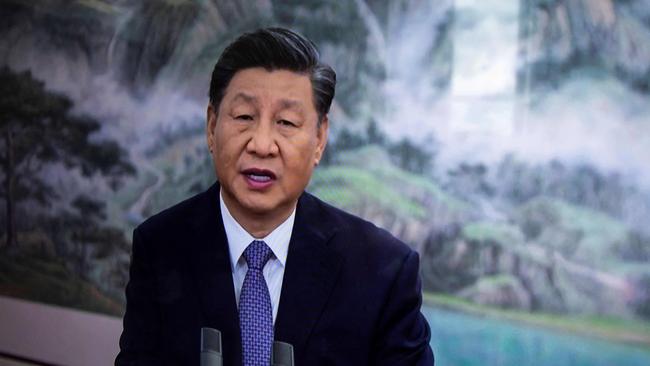
China’s supreme leader has some good advice.
“Action speaks louder than words,” he told the UN secretary-general in May.
It’s a useful framework when Beijing switches the rhetorical dial from might-is-right to “building a shared future”, as Xi did in his video address to the APEC CEO Summit on Thursday.
There was plenty for an Australian audience to roll its eyes at.
“China will continue to practice true multilateralism, uphold the WTO-centred multilateral trading system … and promote the building of an open world economy,” Xi said.
Australia has had an almost two-year long masterclass in how hollow those words are. Exports previously worth more than $20bn a year remain black-listed by Beijing for political reasons.
It is why there is such wariness in Canberra about Xi’s bid to join the Comprehensive and Progressive Agreement for Trans-Pacific Partnership, which China’s leader spruiked again in his speech.
While Xi might not be very convincing to an Australian audience, we should pay attention to his tone. Aside from an indirect swipe at the Quad and AUKUS – “small circles”, in Xi’s phrase – China’s leader was determined to present his sunniest face.
His delivery was accompanied by some actions we should also be watching very closely.
China’s joint agreement with the US at the end of the COP26 summit in Glasgow gave the passage in Xi’s speech on climate change a jolt of credibility.
Of course, what China does is what matters, but the agreement indicates the world’s most important bilateral relationship is not entirely dysfunctional.
Next week comes another significant action. Xi is set to meet US President Joe Biden for their long-heralded virtual summit.
Of course, it won’t end the fierce competition between the two great powers. It might, however, slightly lower the temperature of their systemic competition.
To that end, Biden’s national security adviser, Jake Sullivan – days before his Lowy Institute address on Thursday – assured Beijing “a fundamental transformation of the Chinese system” was not a US policy goal.
The China Daily, a party mouthpiece, welcomed those remarks, saying they gave “significant assurance to Beijing, which has long suspected Washington has a hidden agenda to seek regime change in China”.
Xi also wrote a warm letter to Biden, which was widely republished in China’s state media on Thursday. In his note, he said China-US ties were “at a critical historical juncture” and offered his counterpart “mutual respect, peaceful co-existence and win-win co-operation”.
Lovely words, just like much of his APEC speech. But let’s see what actions he takes.




What to make of Xi Jinping’s latest burst of televised diplomacy?